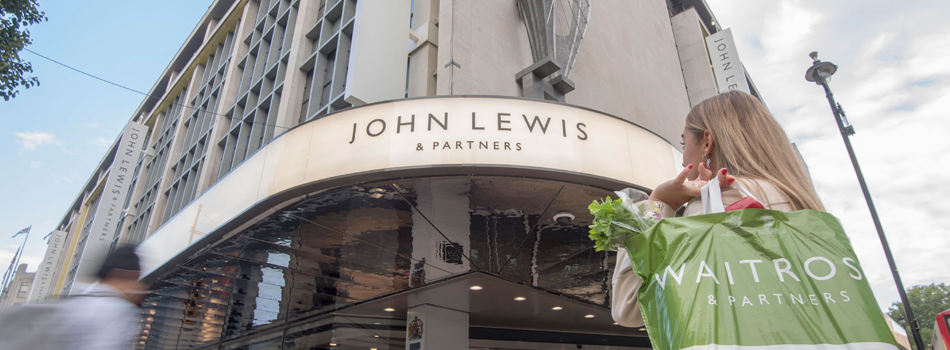John Lewis’ decision to scrap staff bonuses and potentially, its partnership model, is a bigger risk than it might realise. Because while business may change quickly, human needs do not.
The last half-decade has been characterised by rapid change. The pandemic changed consumer behaviours and business priorities – and now the cost-of-living crisis is doing the same. This time, mixed in with some AI-induced existential uncertainty about the future of work.
The world is changing quickly. And brands of all shapes and sizes are making tough decisions. Earlier this month, the John Lewis Partnership announced that all John Lewis and Waitrose staff would not be receiving a bonus after the iconic retail group posted a worse than expected £230m full-year loss.
The needs of businesses change quickly. But it is important for business leaders to remember that the needs of people are relatively constant.
The bare necessities
The hierarchy of needs which drive our behaviours are not changing any time soon. We know that humans – and therefore employees – are driven by extrinsic incentives (rewards that are tangible such as salary, bonuses and benefits) and intrinsic incentives (rewards that are the psychological benefits gained from making a meaningful contribution at work).
One example showing this bias at play is the Citibank call centre study, which was conducted by Stanford Professor Chip Heath. It showed how managers overestimated the amount that their employees were driven by extrinsic incentives when, in fact, employees were more driven by intrinsic incentives.
But in the current inflationary context, we need to question whether this “extrinsic incentives bias” is still valid. Indeed, for employees who truly rely on a bonus, John Lewis’ move to scrap bonuses will matter and will also, at least in the first 12 months, involve some psychological side-effects.
The impact of this will be more difficult to quantify than the losses caused by inflation – with higher freight, energy, labour and fuel bills adding £180m to John Lewis Partnership’s costs. But it will undoubtedly – to some extent – change the John Lewis Partnership experience. For both customers and employees.
The bonus was part of John Lewis Partnership’s’ DNA. Scrapping it could lead to reduced commitment and loyalty and, potentially, to an increased sentiment of unfairness (employees could ask why the bonus was scrapped for everyone rather than being scrapped based on salary levels or performance levels).
Humans want certainty. We want to feel in control about what the future holds. We want to feel secure. Some research suggests this is why Gen-Z report high levels of anxiety, as they have grown up in an era where the future is clouded by social, economic, and environmental uncertainty.
So what can business leaders do?
The best thing businesses can offer staff is psychological safety. Psychological safety is, fundamentally, about radical candour. It helps companies explain layoffs to employees by creating an environment of trust, transparency, and open communication. This can help reduce anxiety and stress, improve morale, and foster resilience among employees.
During the pandemic, companies such as Slack, Airbnb, Hilton, and Marriott were among the first to undertake layoffs. In all of these examples, the companies used psychological safety to communicate layoffs by being transparent (and not avoiding the issue at hand: unprecedented hardship due to the lockdowns), empathetic, and supportive.
For example, Marriott’s CEO Arne Sorenson gave an “emotional” speech which showed elements of psychological safety in action. Sorenson began his announcement by acknowledging the difficulty of the decision and expressing his empathy for those affected by the layoffs.
Reassurance is best delivered through actions, as much as words. Sorenson provided support and resources for employees who were affected by the layoffs, such as career coaching, job placement assistance, and extended healthcare benefits. By doing so, he helped alleviate some of the anxiety and uncertainty that often accompany layoffs.
Slack, Airbnb, and Hilton, had a similar approach to Marriott. By prioritising psychological safety, these companies were able to show that they valued their employees and were committed to helping them through a challenging period.
The world is changing quickly – and businesses can’t stop that. But we humans aren’t changing. We still have the same core needs. Companies have a responsibility to cater for these needs and to communicate with them in mind – no matter which way the trade winds blow.
If you’d like to know more about how we can help ensure psychological safety at work through our Employee Experience Solution, please get in touch with the team.
This article was written by our Innovation & Strategy Director Dr Alexandra Dobra-Kiel, and was originally published in Management Today





